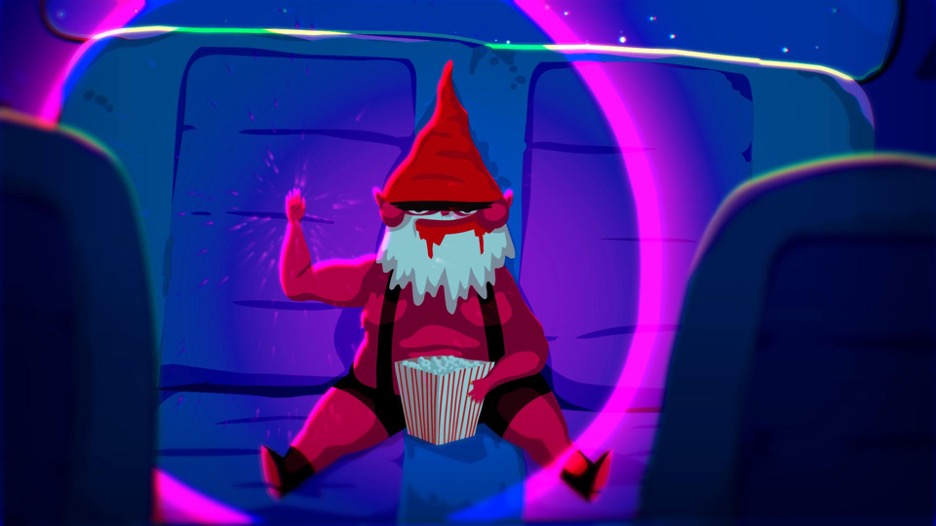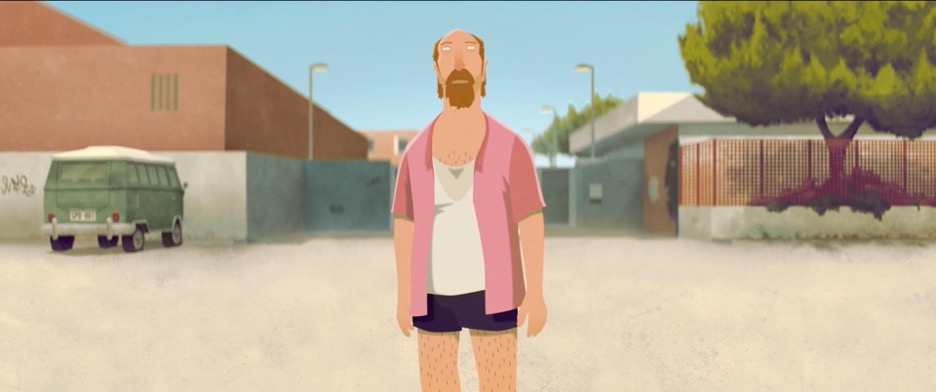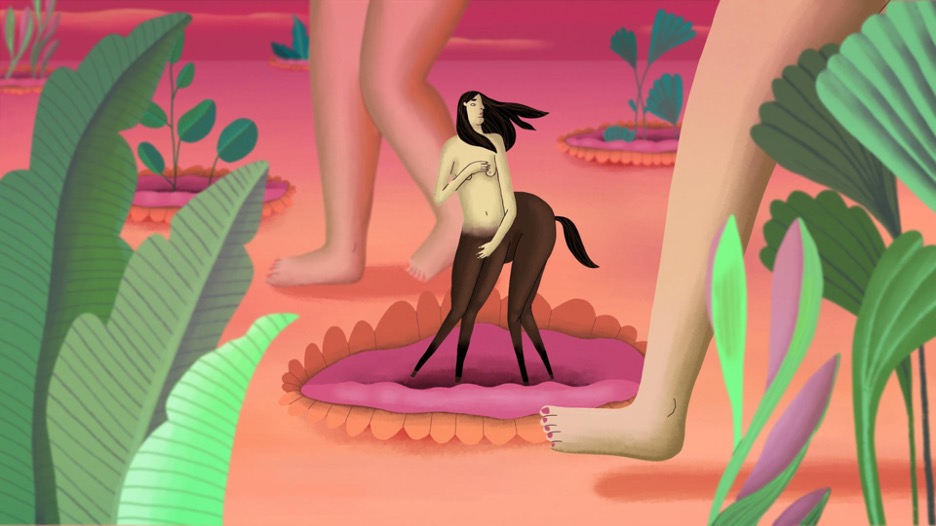


“Annecy and Me”
The festival leaves a lasting mark on those who attend. Five Hungarian creators share their most vivid experiences.
The following year, Flóra returned as a jury member. “It was like a dream. I finally got to see all the short films at Annecy. That said, my friend broke his leg trying out some electric unicycle-scooter thing, so I spent most of the time pushing him around– since he was temporarily in a wheelchair – and then rushing to the screenings. The silver lining was that my wheelchair-bound friend got to skip every line at every party, so this was the first, and probably only, Annecy where I didn’t have to wait for anything.”
“I first went to Annecy as a university student,” remembers Viktória Traub. “I had an overwhelming sense of FOMO all at once. It’s impossible to see every film… I always felt like I needed to be in two or three places at the same time.” Eventually, with her short Mermaids and Rhinos, she made it into the competition program in 2018. “That brought on a different kind of FOMO. The challenge was no longer just to catch at least some of the screenings, but to coordinate all the programs I was interested in.”
In 2024, Viktória returned with her short Shoes and Hooves. “My husband and I rode a motorcycle from Budapest through the Alps to Annecy. We were caught by a huge storm at night, forcing us to stop in Italy. The next day, we arrived in still-wet clothes and headed straight to the laundromat before going to the cinema.”
“The first few trips were by minibus; we had a driver, and about ten or fifteen of us would go together,” Áron Gauder, director of District, recalls. “At that point, we didn’t even have a film – we just went to Annecy to check things out and see what it was all about. It felt like an amazing class trip.” Once, they even loaded up the minibus with a ton of French cheese to bring home. “By the time we got home, after two days in the summer heat, the smell was… pretty intense.”
When Áron’s first feature, District, won the Crystal in 2005, the team was caught off guard. “At first, we weren’t even sure it was us. But then we heard our names called, and it hit us like a ton of bricks. We were stunned, barely able to move. All we managed to say on stage was, ‘Everyone’s invited to get wasted with us tonight,’ and then we stumbled off.”
Viktória was also there that year, but her visit was memorable for a different reason: “We made a campfire. It was Midsummer Night, and I jumped over it, landing clumsily with a loud crack – I fractured one of the bones in my foot.”
Accidents seem to be part of the Annecy experience – though not all come with broken bones. Dávid Dell’Edera, whose graduation film Balcony won the jury’s award in 2016, wanted a memorable photo after the ceremony. “I was just talking to another award winner when a photographer approached us. For some reason, it seemed like a great idea at the time to clink our glass awards together instead of our glasses. His award got slightly cracked. Mine remained intact. Awkward. But we ended up having a good laugh.”
The atmosphere of the screenings made a huge impression on Dávid. “After each short, the director emerges, bows, and the audience greets them with applause. When my film ended, there was a moment of silence before one shout followed another, until the whole room went wild – thunderous applause, inarticulate shouts, real, raw reactions.”
“For me, what’s remarkable about this festival is the enthusiasm,” says Balázs Turai, whose short, Amok, won the Crystal in 2022. “The audience here really loves the screenings – cheering, laughing, throwing paper planes – followed by lakeside drinking and parties. You can easily meet a lot of nice people. It’s a real collective atmosphere.”
Áron echoes this sentiment: “The Annecy audience is amazing. They’re always cheering, throwing paper airplanes onto the stage whenever they like something. They’re so interactive—it really made the whole experience special.”
Zoltán Huber

